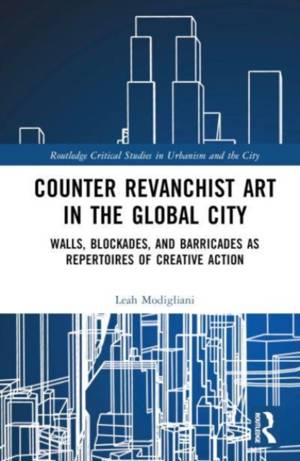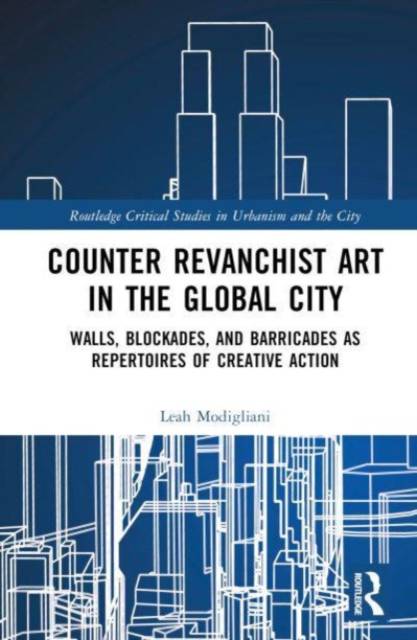
- Retrait gratuit dans votre magasin Club
- 7.000.000 titres dans notre catalogue
- Payer en toute sécurité
- Toujours un magasin près de chez vous
- Retrait gratuit dans votre magasin Club
- 7.000.0000 titres dans notre catalogue
- Payer en toute sécurité
- Toujours un magasin près de chez vous
Counter Revanchist Art in the Global City
Walls, Blockades, and Barricades as Repertoires of Creative Action
Leah ModiglianiDescription
Through analyses of public artworks that have taken the form of blockades and barricades since the 1990s, this book theorises artists' responses to global inequities as cultural manifestations of counter-revanchism in diverse urban centres.
This book is the first to analyse artworks as forms of counter-revanchism in the context of the rise of the global city. How do artists channel the global spatial conflicts of the 21st century through their behaviours, actions, and constructions in and on the actually existing conditions of the street? What does it mean for artists--the very symbol of freedom of personal expression--to shut down space? To refuse entry? To block others' passage? The late critical geographer Neil Smith's influential writing on the revanchist city is used as a theoretical frame for understanding how contemporary artists engender the public sphere through their work in public urban spaces. Each chapter is a case study that analyses artworks that have taken the form of walls and barricades in China, USA, UK, Ukraine, and Mexico. In doing so, the author draws upon diverse fields including art history, geography, philosophy, political science, theatre studies, and urban studies to situate the art in a broader context of the humanities with the aim of modelling interdisciplinary research grounded in an ethics of solidarity with global social justice work. Collectively these case studies reveal how artists' local responses to urban revanchism since the end of the Cold War are productive reorientations of social relations and harbingers of worlds to come.
By using plain language and avoiding excessive academic jargon, the book is accessible to a wide variety of readers. It will appeal to scholars and graduate students in the fields of studio art, modern and contemporary art history, performance studies, visual culture, and visual studies; especially in relation to those interested in conceptual practices, performance art, site-specificity, public art, political activism, and socially engaged art. Cultural geographers and urban theorists interested in the social and political ramifications of temporary and everyday urbanism will also find the analysis of artworks relevant to their own studies.
Spécifications
Parties prenantes
- Auteur(s) :
- Editeur:
Contenu
- Nombre de pages :
- 188
- Langue:
- Anglais
- Collection :
Caractéristiques
- EAN:
- 9781032195117
- Date de parution :
- 31-08-23
- Format:
- Livre relié
- Format numérique:
- Genaaid
- Dimensions :
- 156 mm x 234 mm
- Poids :
- 462 g

Les avis
Nous publions uniquement les avis qui respectent les conditions requises. Consultez nos conditions pour les avis.






